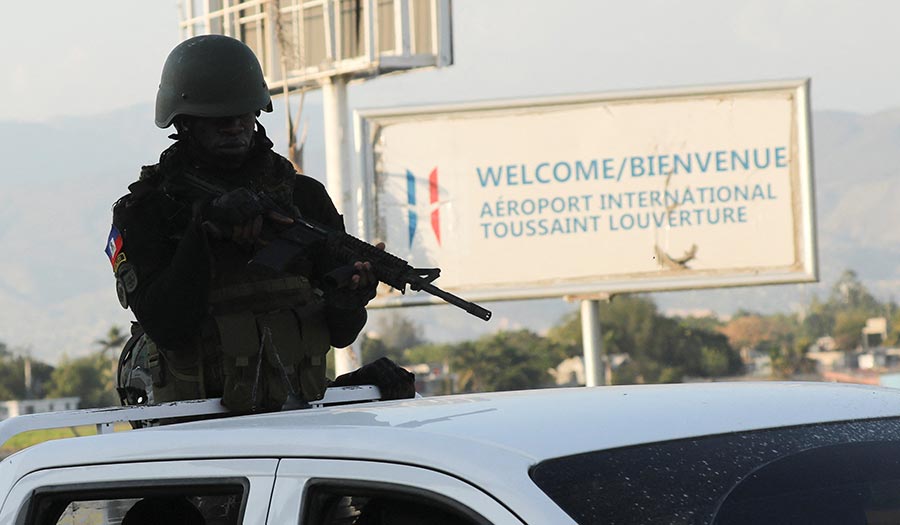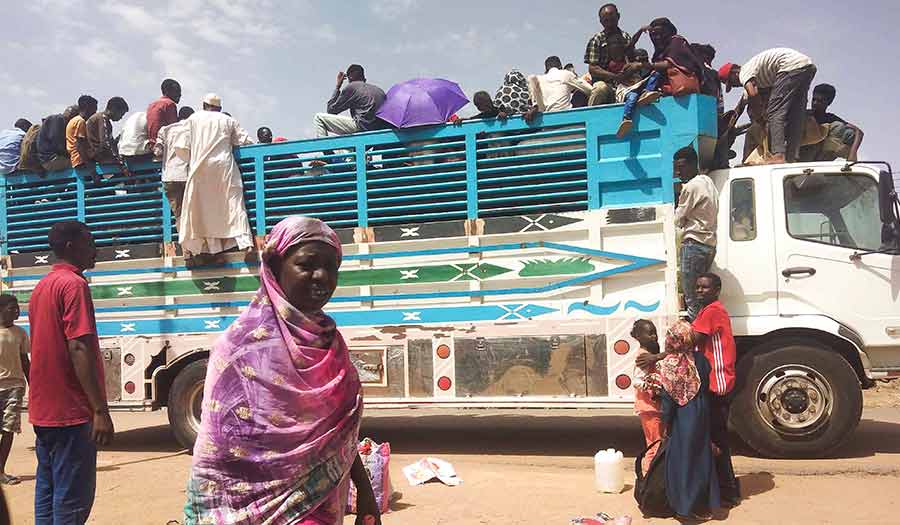 REUTERS/Ralph Tedy Erol
REUTERS/Ralph Tedy Erol
World News Desk
Learn the why behind the headlines.
Subscribe to the Real Truth for FREE news and analysis.
Subscribe NowPORT-AU-PRINCE (Reuters) – A fresh wave of violence in Haiti this week triggered by a top gang leader’s push to overthrow the prime minister has forced more than 15,000 people to flee the fighting, accentuating an increasing sense of misery and lawlessness.
“Armed gangs forced us to leave our homes. They destroyed our houses, and we’re on the streets,” said Nicolas, who is living in a camp, sleeping in such cramped conditions he says he feels like an animal.
The situation escalated over the weekend as Prime Minister Ariel Henry went to Kenya to tie up a deal for the deployment of foreign troops to restore order. On Sunday, Haiti’s threadbare government declared a state of emergency after inmates escaped in two major prison breaks and heavy gunfire sounded across the capital.
Haitian and U.S. media have reported that Mr. Henry may be attempting to return to Haiti from New York. When asked on Tuesday, UN spokesperson Stephane Dujarric said he had no information about his whereabouts or potential meetings.
Meanwhile, embassies have recalled their staff. The Dominican Republic, which shares the island of Hispaniola with Haiti, has sought to strengthen its border security and said it will not set up refugee camps for fleeing Haitians.
The United Nations’ immigration office said during the weekend that at least 15,000 people had been displaced due to violence.
“I didn’t have time to take any of my things, not even my underwear,” said Jasmine, who declined to give her last name, at a shelter on Tuesday. “I didn’t know what to do.”
Reynold Saint-Paul, a resident of the Port-au-Prince neighborhood Lalue, said he came to a shelter to find water—an increasingly scarce commodity in the capital.
‘Schoolbooks for Guns’
Rights group Plan International said many were fleeing the capital for Artibonite, traditionally Haiti’s breadbasket farming region but whose residents are now facing food shortages as fighting spreads north.
Following an assessment of 500 testimonies across three regional communes, it found many families were skipping food for a day, half of children were out of school, and a lack of economic opportunities meant many felt they had no choice but to join gangs. Some 30 to 50 percent of gang members are estimated to be minors, the children’s rights group said.
Country director Allassane Drabo said girls were at particular risk of forced marriage, with parents unable to meet basic needs. “Widespread violence is robbing too many of their childhood, with girls being forced to swap schoolbooks and bread for guns and wedding dresses,” he said.
Kwanli Kladstrup, country director of aid agency Concern Worldwide, said an estimated five million of Haiti’s 11 million people faced acute hunger.
“Peace and security needs to be established as quickly as possible to enable humanitarian work to be ramped up further,” she said.
“Everybody is traumatized and we are seeing increased numbers of people being forced to flee their homes—often bringing nothing with them—to escape the fighting.”
Since the assassination of President Jovenel Moise in 2021, violent gangs have expanded control of territory and an already precarious security situation has worsened. Mr. Henry—who leads an unelected interim government—had pledged to step down by February, but delayed the process, citing the lack of security.
Countries have been slow to offer support, with some raising doubts over the legitimacy of Mr. Henry’s government amid widespread protests. Others are wary of international interventions after previous UN missions left behind a devastating cholera epidemic and sex abuse scandal, for which reparations were never made.
At a regional summit last week, leaders from Latin America and the Caribbean called in a joint declaration for “prompt and effective implementation” of last year’s UN resolution ratifying the Kenyan-led multinational force.
A deployment date for the security mission has not been set, however. As of late February, the UN said five nations had formally pledged troops, with less than $11 million deposited into a fund for the mission.
Humanitarian aid groups say they are also chronically underfunded and that their workers have struggled to keep delivering their services due to the violence. Mr. Dujarric said this year’s $674 million UN humanitarian appeal has received just $17 million.
The UN estimates the conflict killed close to 5,000 people last year and has driven some 300,000 from their homes.
- World News Desk
- AFRICA
 UN: Rape and Sexual Violence in Sudan’s Ongoing Conflict May Amount to War Crimes
UN: Rape and Sexual Violence in Sudan’s Ongoing Conflict May Amount to War Crimes
More on Related Topics:
- Shackled and Defiant, Maduro Pleads Not Guilty to U.S. Narcotics Charges
- As Fighting Escalates, Kidnappings of Aid Workers Surge in South Sudan
- UN Decries Crimes Including Gang Rape, Murder, Torture in Congo Conflict Over Last Year
- Spate of Hoax Calls About Active Shooters Stirs Fear at College Campuses Around the U.S.
- Sexual Violence in Conflicts Worldwide Increased by 25 Percent Last Year, UN Says


